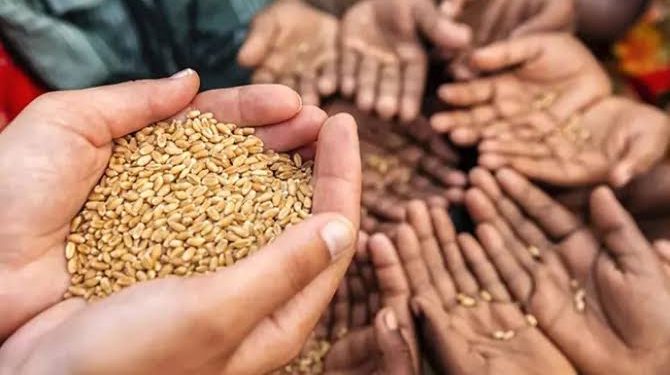Nigeria’s agricultural sector is facing a critical challenge due to worsening insecurity and the impact of climate change, experts say. These issues, which have plagued the country for over a decade, are severely limiting productivity, driving up food prices, and worsening the cost of living crisis. At a recent Food and Energy Summit, experts highlighted the urgent need for action to address these factors to boost agricultural output and attract both local and foreign investments.
Mezuo Nwuneli, Managing Partner at Sahel Capital, emphasized that tackling insecurity is crucial to opening the door for economic investments. “We need to address insecurity before we can expect an inflow of local and foreign currency,” he said.
Abubakar Kyari, Nigeria’s Minister of Agriculture, painted a bleak picture of the agricultural landscape, citing multiple challenges. These include droughts, banditry in food-producing states, and devastating flooding. Kyari explained that insecurity, especially in rural areas, is displacing farmers and destroying food production, while land degradation from poor management practices further diminishes agricultural yields.
“Degradation driven by overuse of land amid poor management practices continues to reduce agricultural yields,” Kyari stated. He called for investments in climate-smart agriculture and the acceleration of climate-resilient seed adoption to bolster Nigeria’s food security in the face of climate change.
The country also struggles with high levels of post-harvest losses, which Alexander Isong, president of the Organisation for Technology Advancement of Cold Chain in West Africa (OTACCAWA), identified as a major barrier to food security. “40 to 60 percent of our food is lost after harvest,” he noted, urging the government to invest in cold chain infrastructure to preserve food and reduce losses. Isong pointed to Kenya and Egypt, which generate substantial revenue from cold chain exports, stressing that Nigeria’s underdeveloped cold chain sector is hindering growth in food production.
“Nigeria needs to start talking about the cold chain if we want to ramp up food production,” Isong said. He explained that the cold chain industry, with a global market value of $200 billion annually, is an opportunity Nigeria cannot afford to ignore.
Kabiru Rabiu, Group Executive Director of BUA Foods, urged for concrete action, stating that discussions on food security have been ongoing for years without meaningful follow-up. “We need to stop talking and begin to act,” Rabiu stressed, calling for a National Agricultural Development Programme that includes a body to drive and implement solutions. He advocated for sustainable plans that move beyond discussions and focus on actionable steps to address food insecurity.
Rabiu also highlighted the need for infrastructure improvements, such as irrigation systems and mechanized farming, to support sustainable agricultural development.
As Nigeria grapples with food insecurity, experts are calling for serious collaboration between the private sector, government, and development finance institutions to develop and implement effective solutions. Without urgent action, Nigeria’s agricultural sector will continue to struggle under the weight of insecurity and climate change.










